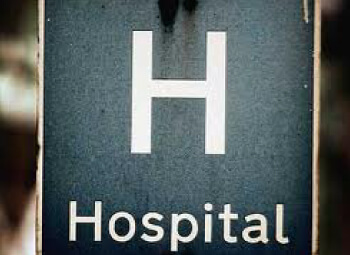They’re not exactly great bedtime or bathroom reading—hospital bills that drone on for pages. They can put you to sleep, exactly what shouldn’t happen if you aim to be an informed and astute consumer. Remember: More than 80 percent of hospital bills contain errors.
If you haven’t had the displeasure of accruing a hospital bill lately, you may be in for a surprise, just as I was a couple of years ago when a sporting accident found me laid up for a couple of days at the local trauma center. That little outing came to $37,500. The food was bad, too.
Sure, the usual suspects lurked on my bill, like ridiculously high charges for medications I’d get for one-tenth the price, or less. Then there was the plastic brace I knew was sold to the hospital for $1,500 and billed to me at $7,000: (I still have it if you know anyone who needs one used. It’s for the spine, size 8. Craig’s List, maybe?)
Charges can make you sick

If you have good health insurance, good for you: You’re “covered” in more ways than one. I unfortunately have a high deductible plan from which I can’t escape, leaving me with a major pain not only in my body but at the bank.
When you’re discharged, no matter the quality of you insurance, I recommend a patient advocate. This professional will study your medical bills in search of mistakes and overcharging, and if necessary to assist you in filing an appeal to get charges corrected, or negotiate a reasonable payment plan for you. They may interface with collection agencies, find free or lower-cost care for more expensive medical treatment, and even help fill out those irritating insurance forms.
The advocate will dissect the itemized list carefully, looking for any terms disguised as something else. Did you pay $100 for a toothbrush, $10 for an aspirin or $25 for gauze? Did you buy a “disposable mucus recovery system,” a.k.a. tissues, for $20?
Where to get help
A good place to start is Medical Billing Advocates of America (MBAA). The organization says “as healthcare costs skyrocket, millions of insured, under-insured, and uninsured Americans are forced to fight for their health, welfare, and lives against a billing system that increasingly puts the well-being of drug companies, hospitals, and insurance companies above that of its citizens.”
Locate someone to help you there on the organization’s website. You can expect to pay an advocate an hourly fee or a percentage of the “take,” possibly as high as 30 percent. Again, why not negotiate?
If you’re reinventing your baby boomer career now, MBAA will train you to be a patient advocate—a good at-home job opportunity. Healthcare isn’t going way.
Other resources
Also check these out:
- Health Advocate
- Patient Advocate Foundation (nonprofit): May help you at no charge.
In closing, know this: You can ask for your hospital bill to be discharged, just as you were. Hospitals have foundations and other resources that pay charges for people who can’t. It’s really worth a try. Promise.
+++++++++++++++++++++++++++++++++++++++++++++++++++++++++++++++++++